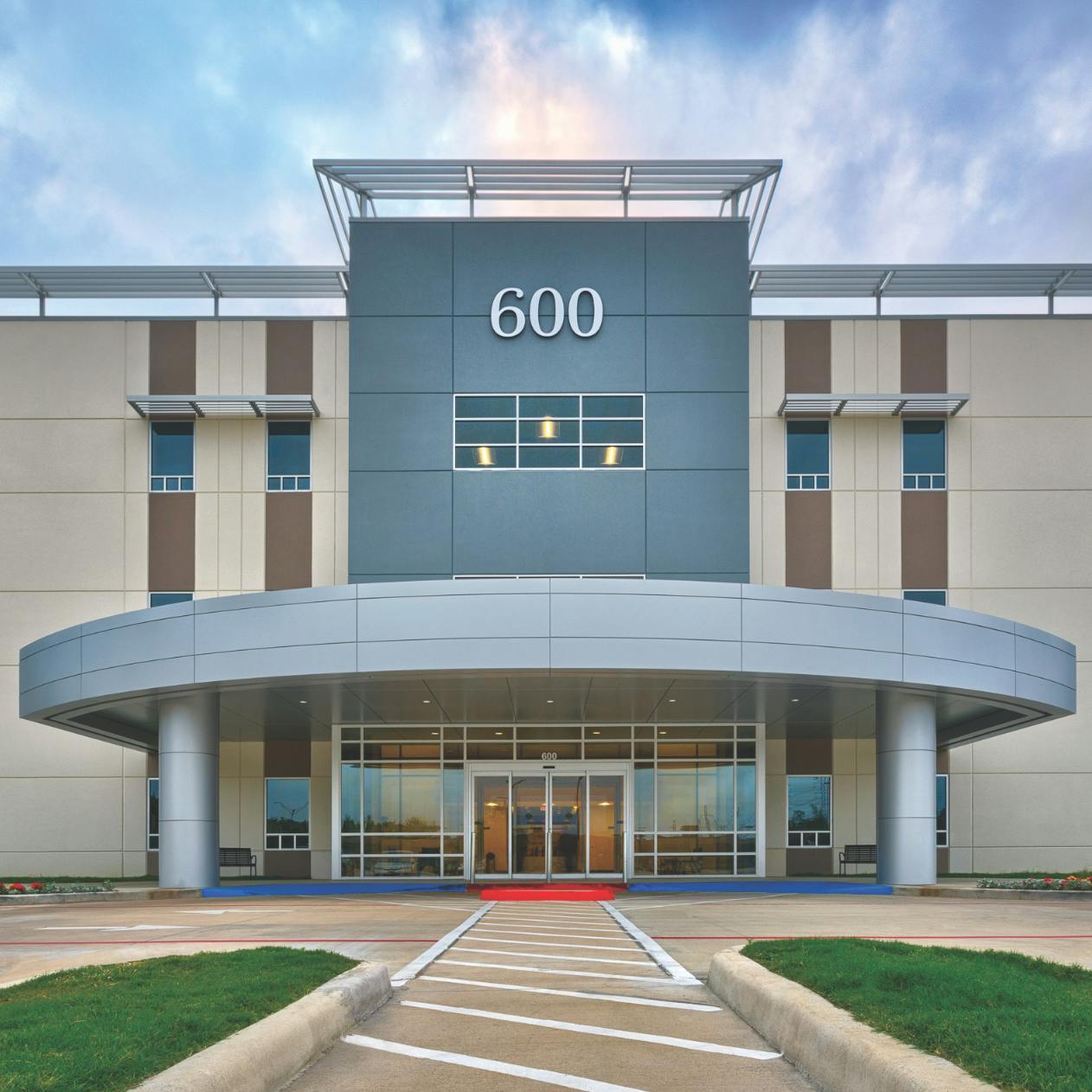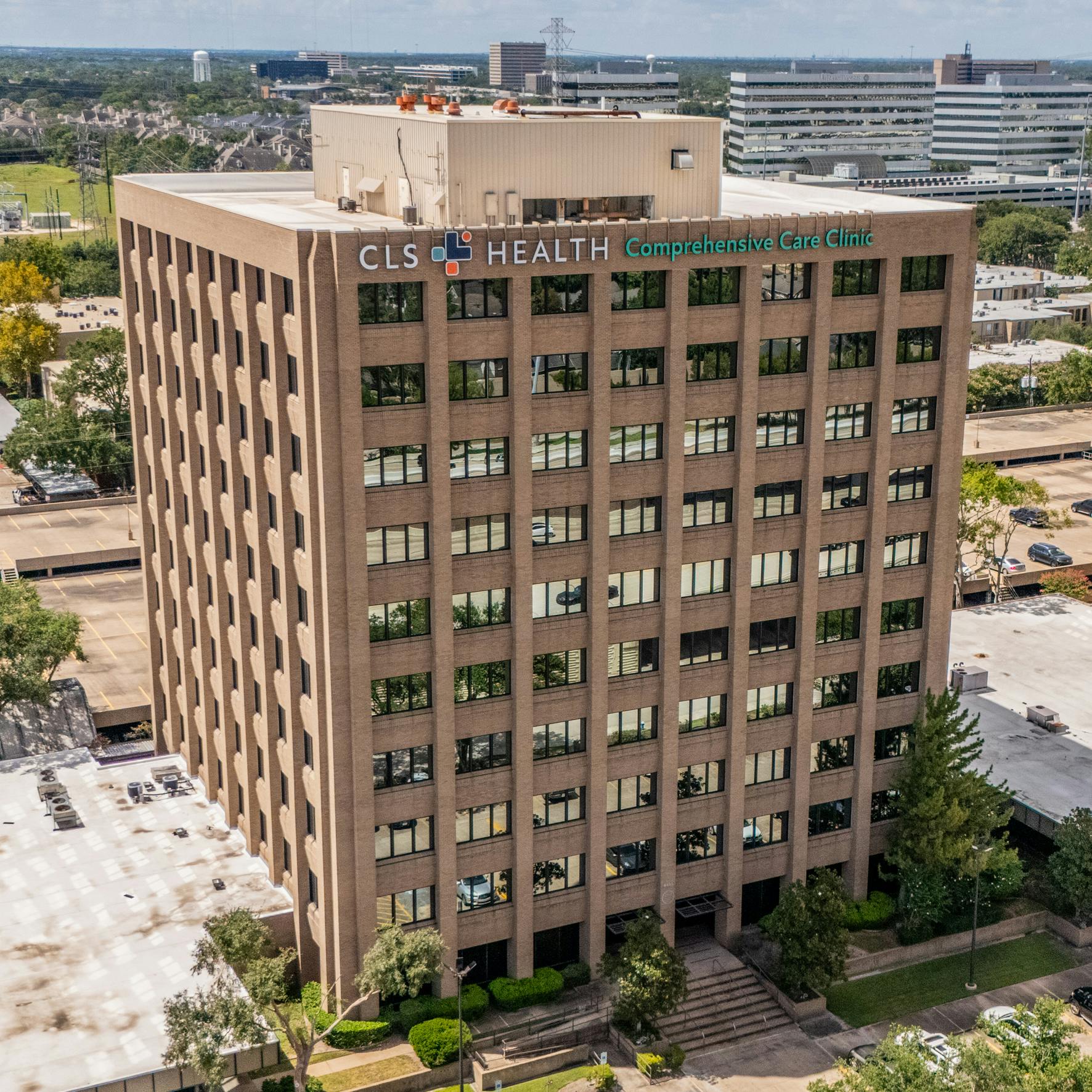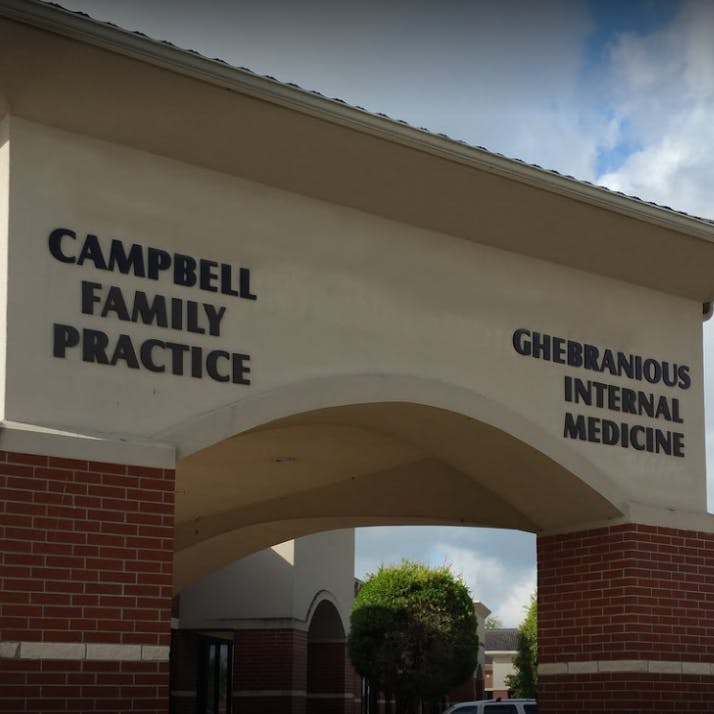Gastroenterology

Diagnosing and Treating Digestive System Disorders
Ongoing digestive problems make even simple things, like eating a meal or getting through the day, feel like a challenge. Stomach disorders don't just cause discomfort — they can interfere with sleep, sap energy, and make daily life difficult. When medications and diet changes don't help, it's easy to feel frustrated and stuck. Many patients go years without real answers.
The right care can make all the difference.
Gastroenterologists at CLS Health find out what's really going on, using advanced diagnostic procedures and testing to identify the underlying cause of your symptoms. We treat all conditions of the digestive tract including acid reflux (GERD), IBS, Crohn's disease, and Celiac disease. Our GI specialists are dedicated to helping you find lasting relief and restore your digestive health with a clear diagnosis and a personalized treatment plan.
Providers

Interventional Gastroenterology, Gastroenterology

Gastroenterology

Gastroenterology
Conditions Treated
Our gastroenterologists diagnose and treat disorders that affect swallowing and esophageal function, including GERD (acid reflux), Barrett’s esophagus, and Eosinophilic Esophagitis (EoE). These conditions can cause heartburn, chest pain, or difficulty swallowing (dysphagia). Specialists use tests like endoscopy and esophageal motility studies to identify inflammation, scarring, or narrowing of the esophagus. Treatment may include acid-suppressing medication, dietary adjustments, or minimally invasive procedures to relieve symptoms and prevent long-term tissue damage.
Gastroenterologists manage upper digestive issues such as gastroparesis, ulcers, and celiac disease, which can cause nausea, bloating, or nutrient deficiencies. They also help patients with food allergies and intolerances, like lactose or gluten sensitivity, that disrupt digestion. Diagnosis often involves endoscopy, breath testing, or lab evaluation to pinpoint the cause of discomfort. Treatments combine medications, dietary therapy, and lifestyle changes to improve digestion and restore healthy stomach and intestinal function.
Our gastroenterology specialists provide expert care for chronic bowel disorders such as Irritable Bowel Syndrome (IBS) and Inflammatory Bowel Disease (IBD), including Crohn’s disease and ulcerative colitis. They also screen for and treat colon polyps, colon cancer, and inflammatory problems like diverticulitis. Patients experiencing chronic constipation, diarrhea, or abdominal pain can benefit from comprehensive evaluation and personalized management. The goal is to reduce flare-ups, prevent complications, and promote long-term digestive health.
Gastroenterologists care for diseases affecting the liver, gallbladder, and pancreas, including hepatitis, fatty liver disease (NAFLD), gallstones, and pancreatitis. These conditions may cause abdominal pain, jaundice, or fatigue, and can lead to serious complications if untreated. Through advanced imaging, lab testing, and endoscopic procedures, specialists diagnose and manage issues like cirrhosis, biliary obstruction, or pancreatic cysts. Early detection and tailored treatment help preserve organ function and reduce cancer risk.
Our gastroenterologists treat conditions affecting the lower digestive tract, such as hemorrhoids and chronic or unexplained abdominal pain. These issues can cause discomfort, bleeding, or difficulty with bowel movements. Evaluation may include physical examination, imaging, or endoscopic testing to identify the underlying cause. Treatments are often minimally invasive and focus on relieving pain, improving bowel function, and preventing recurrence.
Procedures & Diagnostic Tests
Endoscopic procedures allow gastroenterologists to diagnose and treat digestive conditions without surgery. A colonoscopy helps detect and remove polyps or early cancers, while an upper endoscopy (EGD) examines the esophagus and stomach for ulcers or reflux damage. Advanced options like ERCP and EUS evaluate the bile ducts, pancreas, and surrounding tissues. These procedures provide high diagnostic accuracy with minimal discomfort and quick recovery times.
Specialized diagnostic tools help pinpoint and manage complex digestive issues. Tests like FibroScan assess liver stiffness and fatty liver disease, while esophageal function and pH testing measure acid reflux severity. Patients with Crohn’s disease or ulcerative colitis may receive infusion therapy to control inflammation and maintain remission. These targeted tests and treatments guide individualized care for long-term gut health.
Because diet plays a crucial role in digestive health, gastroenterologists often work with registered dietitians to develop personalized meal plans. Nutritional counseling supports patients with IBS, IBD, celiac disease, and food intolerances, helping reduce symptoms and improve overall well-being. Guidance may include elimination diets, fiber management, and weight optimization strategies. This integrated approach ensures every patient receives care that supports both digestive and overall health.
Don't see your insurance listed? We may still accept it! CLS Health updates accepted insurance plans regularly. Please call (281) 724-1860 to verify your coverage.
- Aetna Select
- Open Access Selects
- Elect Choice
- Aetna Open Access Elect Choice
- Aetna Choice POS II
- Managed Choice
- Open Choice PPO
- Aetna Medicare Advantage Plans
CLS Health does not accept:
- Aetna CVS Marketplace Plans
* Some providers may not accept this insurance, please call to confirm
- Superior Ambetter Core (Complete, Clear, Focused, Standard Silver and Gold)
- Superior Ambetter Value (Clear Value Silver, Focused Value Silver, CMS Standard Silver & Gold Value, Everyday Value Gold)
- Superior Ambetter Virtual (Ambetter Virtual Access Silver, CMS Standard Virtual Access Basic Silver, Ambetter Virtual Access Gold)
- Superior Health Plan CHIP*
- Superior Health Plan MAPD (Medicare Advantage Prescription Drug)
- Superior Health Plan Medicare
- Superior Health Plan MMP Medicaid*
- Superior Health Plan MMP Medicare
- Superior Health Plan STAR*
- Superior Health Plan STAR Kids*
- Superior Health Plan STAR+PLUS*
CLS Health participates in most Blue Cross Blue Shield plans including:
- Blue Choice PPO
- Blue Essentials
- Blue Essentials Access
- HealthSelect
- HealthSelect of Texas In Area
- Consumer Directed HealthSelect in Area
- HealthSelect of Texas Out of State
- Consumer Directed Health Select Out of State
- HealthSelect Secondary 65+
- Medicare Advantage HMO
- Medicare Advantage PPO
- Medicare Advantage Value HMO
- POS
- Traditional/Par Plan
- TRS-Active Care
- TRS-Care Standard
- BCBS MyBlue Health (Marketplace)
*Some providers may not accept Community Health Choice, please call to confirm
- MarketplacePremier
- Medicaid*CHIPCHIP PerinateSTAR
- Medicare AdvantageDual-Special Needs Plan (D-SNP)
CLS Health accepts most Cigna plans, including:
- Cigna HMO
- Cigna Local Plus
- Cigna Open Access Plus
- Cigna PPO
- ChoiceCare PPO
- EPO
- HMO
- HMO Premier
- Medicare Advantage Plans
- HumanaChoice - Medicare Advantage PPO plan
- Humana Gold Choice - Medicare Advantage Private Fee-for-Service (PFFS) plan
- Human Gold Plus - Medicare Advantage HMO & Special Needs Plan
- Military (TRICARE South Region Military Health Plan)
- POS - including Choice POS, National POS Open Access/Plus and Preferred POS Open Access.
- PPO
*Some providers may not accept United Healthcare, please call to confirm
- Commercial, HMO, POS, EPO and PPO Plans (Charter, Choice,Core, Doctors Plan, Freedon, Heritage, Navigate, Nexus ACO, Options PPO, Passport Connect, Select)
- Indemnity
- Medicare Advantage (AARP, Care Improvement Plus, C-SNP, D-SNP, I-SNP, Erickson Advantage, ERS Medicare Advantage, TRS-Care Medicare Advantage, UnitedHealthcare Chronic Complete, UnitedHealthcare Connected (Medicare-Medicaid Plan), UnitedHealthcare Dual Complete, UnitedHealthcare Group Medicare Advantage PPO, United Healthcare Medicare Complete)
- Community Plans* (CHIP, CHIP Perinate, Star, Star Kids, Star Plus, MMP)
- Wellmed (Wellmed Dual SNP Focus, Wellmed Medicare Advantage Focus)
*Some providers may not accept Wellpoint, please call to confirm
- Medicaid (All Texas Plans Including the Below)*
- CHIP
- CHIP Perinate
- STAR
- STAR+PLUS
- STAR Kids
- Medicare Advantage
- C-SNP
- D-SNP
- I-SNP
- Medicare Advantage HMO
- Medicare-Medicaid (MMP)
- Medicare-Medicaid Program (MMP)
- STAR+PLUS MMP
*Some providers may not accept insurance, please call to confirm
PPO Networks
- Beechstreet PPO
- Carnival Cruise Lines PPO
- Envolve Benefit Options Vision-PPO, HMO
- First Health
- Curative/First Health
- Galaxy Health Network
- HealthSmart Preferred Care
- Accel
- Healthsmart Payors Organization
- Multiplan PPO
- Tricare (Humana) PPO/Prime
Employer-Specific Plans
- Brazoria County Employees – Aetna TPA Brazoria County Employees
Workers’ Compensation Plans
- Workers’ Comp
- Auto & Workers’ Comp
Medicare and Medicare Advantage
- Medicare Traditional
- Medicare Advantage
- Memorial Hermann Health Solutions Commercial and Medicare
- Molina Medicare Complete Care HMO SNP
- Medicare-Medicaid Program (MMP)
- STAR+PLUS MMP
- Alignment Health Plan
- AllyAlign Health
- American Health Plans
- Florida Complete Care
- Gold Kidney Health Plan
- Imperial Health
- Independent Health
- Kaiser Foundation Health Plan of Washington
- Kaiser Foundation Health Plan of Colorado
- Mass Advantage
- Presbyterian Health Plan
- PriorityHealth
- Provider Partners
- SCAN
- UCare
- Vantage Health Plan
- Verda Healthcare
- Zing Health
Medicaid and CHIP Programs
- Molina Healthcare* (Marketplace, Medicaid, CHIP, CHIP Perinate, STAR, STAR Kids, STAR+PLUS)
- Texas Children's Health Plans*
- TMHP (Traditional Medicaid) Traditional Medicaid
Specialty Plans
- VA Community Cares Network CCN
FAQs
You should see a gastroenterologist if you experience:
- Frequent heartburn or acid reflux (GERD)
- Persistent abdominal pain, bloating, or cramping
- Chronic diarrhea, constipation, or blood in stool
- Unexplained weight loss or difficulty swallowing
- A family history of colon cancer or polyps
If you have ongoing digestive symptoms that affect your daily life, a gastroenterologist can help diagnose and treat the underlying issue.
In most cases, you can visit a gastroenterologist directly, but some insurance plans require a referral from a primary care physician. Check with your insurance provider to confirm whether a referral is necessary.
A gastroenterologist is the best doctor for stomach and digestive system disorders. They specialize in treating conditions such as acid reflux, ulcers, irritable bowel syndrome (IBS), and inflammatory bowel disease (IBD).
The most common GI condition is gastroesophageal reflux disease (GERD), which causes acid reflux, heartburn, and potential esophageal damage. Other common GI diseases include irritable bowel syndrome (IBS), peptic ulcers, and inflammatory bowel disease (IBD).
Seek medical attention if you experience:
- Severe or persistent abdominal pain
- Unexplained weight loss
- Bloody stools or black, tarry stools
- Difficulty swallowing or persistent nausea
- Frequent vomiting or signs of dehydration
These could indicate a serious digestive disorder requiring immediate evaluation.
IBS (Irritable Bowel Syndrome) and IBD (Inflammatory Bowel Disease) are two conditions with similar-sounding names but important differences:
IBS (Irritable Bowel Syndrome) is a functional disorder affecting how your intestines work. It causes symptoms like abdominal pain, bloating, and changes in bowel habits (diarrhea, constipation, or both), but doesn't damage the intestines or increase cancer risk. IBS is diagnosed based on symptoms and by ruling out other conditions. Treatment typically includes dietary changes, stress management, and medications that target specific symptoms.
IBD (Inflammatory Bowel Disease) includes Crohn's disease and ulcerative colitis. These are inflammatory conditions that cause actual damage to the digestive tract tissues. IBD is diagnosed through procedures like colonoscopy, blood tests, and imaging. It often requires more intensive treatments such as anti-inflammatory medications, immunosuppressants, or biologics. If left untreated, IBD can lead to serious complications and may increase colorectal cancer risk.
Regular colonoscopy screenings are vital for the early detection and prevention of colorectal cancer. For individuals at average risk, it's recommended to begin screenings at age 45 and continue every 10 years until age 75. Beyond 75, the necessity and frequency of screenings should be personalized based on overall health and prior screening outcomes.
Those with higher risk factors—such as a family history of colorectal cancer, previous polyps, or certain genetic conditions—may need to start screenings earlier and undergo them more frequently. Consult with your healthcare provider to determine a screening schedule tailored to your specific risk profile.
While colonoscopies are the gold standard for colorectal cancer screening due to their ability to detect and remove polyps simultaneously, alternative non-invasive tests like stool-based screenings are available. However, positive results from these tests often necessitate a follow-up colonoscopy. Discuss with your healthcare provider to choose the most appropriate screening method for you.
Common trigger foods to avoid include:
- Acidic foods (tomatoes, citrus fruits, and juices)
- Spicy foods
- Fatty or fried foods
- Chocolate
- Caffeine (coffee, tea, soda)
- Carbonated beverages
- Alcohol
- Mint (peppermint, spearmint)
- Onions and garlic
- Large or late meals
Everyone's triggers can be different. We recommend keeping a food diary to identify your specific triggers and working with our gastroenterologists to develop a personalized diet plan that minimizes reflux while maintaining good nutrition.
- Unexplained weight loss
- Changes in bowel habits (diarrhea/constipation)
- Blood in stool or black stools
- Persistent abdominal pain or cramping
- Fatigue and weakness
Early detection through colonoscopy significantly improves treatment success rates.
Bloating is often caused by gas buildup, food intolerances, or digestive disorders like IBS or GERD. To reduce bloating:
- Avoid high-gas foods (beans, carbonated drinks, cruciferous vegetables)
- Eat smaller, slower meals
- Stay hydrated & exercise regularly
- Identify food triggers (dairy, gluten, artificial sweeteners)
If bloating is persistent or painful, a gastroenterologist can help determine the cause.


